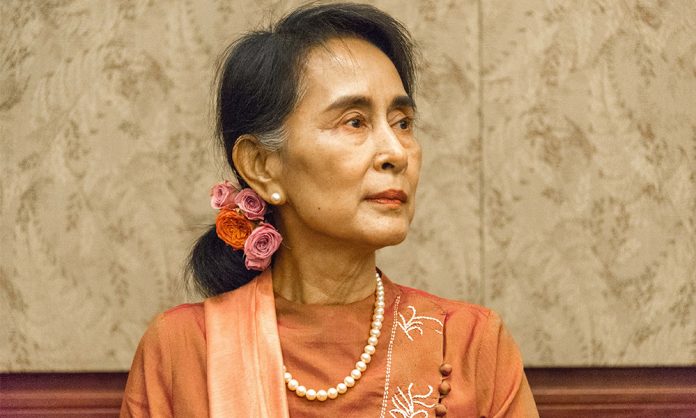When Asean was formed on Aug 8, 1967, no one gave it much of a chance. Asean (Association of South-east Asian Nations), after all, was built on the basis of ASA and Maphilindo, both of which had failed.
Depending on one’s optic, Asean is either the most successful regional organisation in the developing world, second only to European Union (EU) even, or an abysmal failure in terms of the protection of human rights.
Some 700,000 Rohingya Muslims have been massacred or chased out of their own homes —- many to certain deaths as the weak and old members of these refugees literally cannot run but have to be carried on the backs of their sons or grandsons —-leading the UN to describe it as a campaign verging on a “genocide”.
Now, if this was not true, Israel would have protested loudly as they did during the 1992-1994 Bosnian War when the ethnic cleansing in the Balkans then was described by the international community as a “genocide” too. To the Israelies, somewhat selfishly, “genocide” is a term that can be applied only to their Holocaust and no one else.
Be that as it may, now that the “g” word has been used to define the situation on the ground in Myanmar, it is the moral and institutional duty of the rest of the member states of Asean to speak up.
Asean, it should be said, came into existence in the international stage, not by virtue of an act of creation in 1967 merely. Within the first decade of its existence, it proved itself a worthy entity in the UN by urging the world to reject the Vietnamese invasion of Cambodia in 1978 under the principle of non-intervention.
In other words, the member states of Asean have proven themselves adept at rising up collectively, even working closely with the likes of the former foreign minister of Australia, Garreth Evans, to be the spear pointed at the heart of any injustice.
To the degree Asean has had to mediate on the conflict between Crown Prince Ranaridh Sihanouk and Prime Minister Hun Sen, a troika of three foreign ministers was formed in 1997 to ameliorate the tensions between the two leaders.
Even Dr Mahathir Mohamad was one of the first to encourage the inclusion of Myanmar into Asean in 1997. It worked.
But now that Myanmar is a member of Asean, and a signatory of the Asean Charter, which has a whole chapter that focuses on the importance of promoting human rights, it is incumbent on either the whole of Asean or the Asean secretariat with its headquarters in Jakarta to speak up before the situation in Arakan and Rakhine, where the Rohingya Muslims are predominantly located, degenerates further.
Murderous ideology
Now there are two reasons why Asean needs to stand up and be counted. Mahathir has spoken in no uncertain terms that Aung San Suu Kyi, the foreign minister-cum-titular leader of her country, has failed. In many TV or interviews with the BBC, she can’t even utter the word “Rohingya”.
Anwar Ibrahim, too, has expressed his sheer disappointment with her leadership. It does not become more serious than that when a sitting prime minister of Malaysia, and a prime minister-in-waiting, have both articulated their forceful displeasure, if not disgust, with how Myanmar has mishandled the social-political situation of the Rohingyas.
Professor Lee Jones at Queen’s Mary College, one of the strongest analysts of Asean, whose works have appeared in numerous prominent publications, has concurred that the root causes can be attributed to the Buddhist extremism and Burmese localism in the country, both of which have a history that goes back to 19th century.
Thus the situation in Myanmar is not due to land grabs alone but the emergence of a very toxic combo of religion and politics, which consequently has pitched Rohingyas as the “outsiders” due to their darker skin complexions.
This is racism that is morphing into a murderous ideology with the state of Myanmar not speaking up openly. It is plain or textbook ethnic cleansing. If the Asean Defence Ministers Plus meeting in Singapore does not touch on Myanmar, then the Asean secretariat would have failed in its brief to all the relevant ministers of defence.
Thus, one should not be surprised if the minister of defence of Malaysia, Mohamad Sabu, should speak firmly and categorically on the abject situation on the ground. Mat Sabu, as he is known, has after all been a political detainee before, twice.
His human rights standing is no less inferior to Suu Kyi, especially when the world over has already denounced the latter as a fake. Even the University of Oxford, where Suu Kyi’s husband is buried, took down a statue of Suu Kyi last year.



